The past is sometimes represented equally, or at times, more accurately through a range of textual forms, including story-telling and poetry - Birch
In 1884 and 1885, European nations came together in Berlin to divide a continent amongst themselves. Parts of Africa were officially opened up for European colonization, kickstarting what came to be known as the Scramble for Africa. While borders and nations are to a certain extent always arbitrary, the Berlin Conference increased this arbitrariness for the African continent. In the Bight of Biafra, the seeds were planted for what later came to be known as Cameroon. European colonization of this region started in 1884, when the Germans settled themselves there. After World War I, German Kamerun was split between a French and an English part, both seeing subsequently different developments in every layer of society. In 1961, these two regions were "reunified" as a bicultural republic, but the differences between the two Cameroons were big, and the nation and its people never developed as a unity, with a sense of national identity. Herein lies the basis of what is now known as the "Cameroon Crisis"; Anglophone Cameroonians feel oppressed by the Francophone majority, and are even calling for secession from Cameroon. Following Cameroonian writer Peter Wuteh Vakunta, this might not be so strange, as he sees his mother country as a paradoxical nation. In this publication we analyze his 2016 poem Gravitas: Poetic Consciencism for Cameroon. In over 1400 lines, Vakunta offers a "requiem for the geographical expression code-named Cameroon" (africanbookscollective Book Preview). He condemns contemporary politicians, analyzes Cameroon’s colonial past, and points towards the future of "a nation state gone topsy-turvy" (Vakunta, 2016: v). An important underlying current informing the entire poem is his search for a Cameroonian identity.
One of the most telling ways in which the poem expresses the search for identity is through the tension between optimism for the future of Cameroon and Cameroonian unity on the one hand, and pessimism and harsh criticism of his country on the other. For instance, consider the following lines:
Beware of matricide!
Don’t kill Mama Kamerun!
Can you hear me now?
Under her skin lies her beauty
In her roots, her being, her soul
Her essence, her skin (lines 391-396)
They suggest optimism, unity, and a return to some form of an essential Cameroon. But these lines are contrasted with the following ones, where Vakunta describes his departure from Cameroon, not intending to return:
Finally, I can now pack
Bag and baggage
And say adieu to these vampires
I leave behind a human Zoo
In which some animals
Are worthier than others (lines 1385-1390)
These lines can be read as Vakunta giving up his belief in Cameroon. In reality as well, he left Cameroon and now lives in the United States. This tension between the worth and beauty of Cameroon, and his criticism of the country reoccurs throughout the poem and adds to the notion of Cameroon as a paradoxical nation.
We read Vakunta’s poem through the theoretical frameworks of Dipesh Chakrabarty’s historical wounds and Kwame Nkrumah’s consciencism. Historical wounds are "a particular mix of history and memory" (Chakrabarty, 2007: 77). Large scale historical injustices such as colonialism or slavery inflict on their victims and their descendants a historical wound. The historical fact of past injustices forms the basis for historical wounds, but something simply happening is not enough to constitute a wound. For this to happen, the historical fact must be remembered and analyzed by its victims and their descendants. The concept of historical wounds thus combines history with memory and "pose a challenge to the discipline of history by seemingly privileging 'experiential' access to the past" (Chakrabarty, 2007: 79). Using the concept of historical wounds enables other forms of interrogating the past, such as through art. What is more, interrogating the past that lies at the basis of one's historical wound is a step in the process of "healing" the wound. We read Vakunta's poem as a means to make sense of his own historical wound, caused by the Cameroon Crisis and its colonial legacy.
Secondly, we use Nkrumah’s concept of consciencism because it is used by Vakunta in the subtitle of his poem. Gravitas is to be a form of "poetic consciencism for Cameroon." Consciencism is a socialist philosophy of African unity and communalism. According to Nkrumah, these are traditional African values which have been distorted by European colonialism. The Euro-Christian and Islamic values have to be moulded in such a way that they are in tune with the traditional values. In the same way Gravitas promotes a reevaluation of these precolonial values to find a way in which both the Anglophone and the Francophone traditions can exist in unity. Returning to these traditional values will constitute a united, socialist Africa. We use this theory because Vakunta calls for Cameroonian unity throughout his poem.
Reading Gravitas through this framework, we ask the following research question: What role does identity play in Vakunta’s poem? As mentioned above, an important current informing the Cameroon Crisis is the search for identity of Cameroon and Cameroonians. Cameroon’s history problematizes the possibility of Cameroonians having a clear and solid understanding of their national identity. The fact that some Anglophone Cameroonians are even calling for secession is the ultimate proof for the lack of a united Cameroonian identity. The events of the Cameroon Crisis raises important questions like, Who is a Cameroonian? What is Cameroon? Where lies the main problem of the Cameroon Crisis? And what does it mean to identify (or not) with a nation state? We read Gravitas as an expression of these difficulties and as a search for identity. If indeed Cameroon is a paradoxical nation, how is it possible to identify with a paradox?
The outline of this publication is as follows. First, we describe the historical context and trajectory of the Cameroon Crisis in more detail, and also write on the contemporary situation in which the poem was written. Then we outline in more detail the theoretical framework used to analyze the poem. Afterwards, we analyze sets of lines in an interactive presentation on Genius.com. In so doing we answer our main research question. After this analysis, we critically reflect on Vakunta and discuss his decision to use poetry as an artform. In the conclusion we answer our research question. To consult our works cited click here.
After the publication of this project, Dr Vakunta answered our questions to him (see the comment thread of the post: Questions to Dr Vakunta).
Most importantly, the intellectual must seek out opportunities to speak truth to power, the more so because unquestioning subservience to authority in contemporary society is tantamount to a threat to an active and sane intellectual life. It is my fervent hope that Gravita will go a long way in serving as a whistle-blower on the genocide that is ongoing in Cameroon.
(Dr Vakunta in response to this publication)
Also read our reflections (Jan and Marie) on taking an alternative view to Eurocentric history writing, the power of art and the digital mode of publishing in this project.
I disagree with Achille Mbembe who maintains that only through radical reform can the university be decolonized – such radical reform that the university would cease to be a university as we know it. I believe that in our current academic system, however imperfect it may be, it is possible to create instances of decolonized knowledge. By that I mean forms of knowledge that are not written from a Eurocentric perspective, and offer a counternarrative to dominant discourses that represent former colonies as backward and undeveloped. Moreover, this publication helps spread information about the contemporary situation in Cameroon, thus educating the public on this topic.
(Reflection on this project by Jan Bant)
Featured image at the top of this page: Peter Wuteh Vakunta. Source: Group blog Up Station Mountain Club ("A no holds barred group blog for all things Cameroonian. "Man no run!"). Blog Termites in Cameroon! by Peter Wutah Vakuntah, 7 July 2015.
This project was made possible with the help of Walter Nkwi Gam.



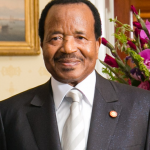

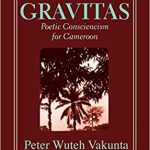
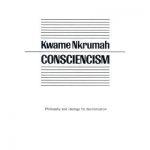
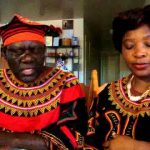
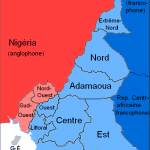
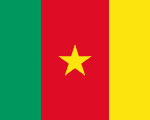
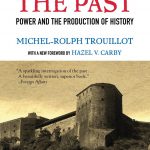
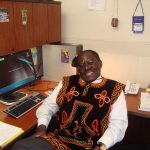
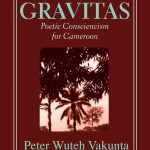
Dr. Vakunta
February 12, 2020 (15:44)
Dr. Brant and colleagues,
Thanks for a succinct analysis of my poetic work, Gravitas. This is a seminal project that sheds ample light on the role of the creative writer in the struggle for the protection of human rights and linguistic minorities the world over .Looking forward to an an opportunity to collaborate in the future.
Best regards,
Dr. Vakunta
Kim de Vries
March 9, 2020 (11:40)
Dear Dr Vakunta,
In case you are willing to proceed this collaboration, please find a list of questions the students would have liked to asked you here: http://innovativeresearchmethods.org/questions-to-dr-vakunta/.
We would appreciate it, if you could still share your opinions with us.
Kind regards, also on behalf of the authors,
Kim de Vries
Lecturer for the course Negotiating power
Walter Nkwi
March 21, 2020 (13:50)
A very special and new way of writing history. Jan and Marie have translated poetry to prose. It could not have been more innovative. It becomes more compelling and “a must read”. A brilliant job
Nkwi